Note: In 2021, I’m blogging once a week, on Saturdays. This is entry 22 of 52.
Note: Toward the end of this post, news blasts start. They include: US, Myanmar, Nigeria, and China. Skip down if you just want those.
Note (added 6 June ’21): I edited part of the Nigeria section (most of the editing shown with strikethrough), and explained the change in the comments

In the past few months as part of journaling and mental health recovery, I’ve been slowly creating a timeline of my life and the lives of those relevant to me. It starts with birth dates for some of my great-grandparents and continues to the present. It looks like the below excerpt (but here I’m adding redactions and obfuscating some specifics, for privacy):
Aug 24, 1998 (age 1█.█): Private therapist Dr Barry Norman refers me to private psychiatrist Dr Tom Murphy
██ ██, 1999 (age 1█.█): A sibling of mine [name] and [name] marry in █████, Texas
██ ██, 2000 (age 1█.█) A nephew of mine [name] is born in ████, Texas
I hope to add many, many more entries into the timeline as the years go on; it’s still pretty sparse.

All the same, I’ve learned quite a lot from building the timeline .txt document brick by brick to the degree I have. For instance, I never realized the Apollo 11 landing — when humans first walked on the moon — was less than a decade and a half away past-ward from my birth. Previously, I’d pictured families watching astronaut Neil Armstrong utter his famous line from the lunar surface on televisions in homes that must have looked like Revolutionary Road 1950s stage sets. But instead, Neil & Buzz & Michael Collins did their celestial thing quite close to when I showed up on this particular planet (in my current bodily form, anyhow).
I also hadn’t ever deeply thought about some pretty key forces beyond my control that explain my life to a powerful extent, such as the event/date when my biological parents married (those youthful Southern marriages, those multigenerational Southern novels!). I also hadn’t ever seen the important temporal proximity some dates have to one another. For example, imagine a big medical event (e.g., a surgery) happening soon after another event (e.g., a breakup with a romantic partner). That temporal connection can hold clues explaining what exactly was going on for a person in a certain time frame. Unfortunately, life dates are typically siloed by category, with medical events stored in one file, and breakups as entries punctuating a separate social media profile, the two categories never to meet. Yet we live through our various events at once, holistically, so to understand ourselves, our world, each other, we gotta bring together into one timeline the disparate dates … Or, it helps provide a sense of multigenerational continuity to discuss with parents, while they’re still alive, what their wedding was like, and how their marriage played out (sadly, it seems people typically discuss weddings far more than marriages). Instead, a crucial event like a wedding too often remains something that never even enters the offspring’s consciousness. You get the point.
Or maybe people don’t get the point: often, when I ask others if they remember whether a certain event happened on this date or that date, they frequently don’t remember, not just the topic I’m inquiring about, but their entire lives: “it’s all a blur,” they say. That doesn’t help a person steer! Here’s an analogy. If you’re trying to cook a meal, taking food from unprepared to prepared, and you don’t even know what kind of food it is that you’re planning to cook — steak? broccoli? quinoa? bread? — then you don’t know if you need a grill, a steamer, an oven, or what. So if you are, to yourself, “all a blur,” and you’re having mental health problems that you’re trying to improve, be it alcoholism or manic psychosis or procrastination or anything else, then how are you going to select what to do to take a blur from troubled to firing on all cylinders?
I understand, though. The notion of putting together something like a personal/family timeline — which a mentor once suggested to me over a decade ago, couching it in terms of writing a memoir — used to feel too threatening/overwhelming. So I rejected such advice fairly quickly, not even knowing that I was feeling threatened and overwhelmed (no such thing as “social emotional learning” in Fort Worth private schools, unlike Seattle Public Schools, not to say that public education SEL is fantastic necessarily). Although, when I resisted helpful suggestions, or resist them even nowadays, I still had/have awareness of what’s good for me. When encountering a great idea that at first was too threatening/overwhelming (such as going vegan, which I initially learned about in philosophy undergrad), I usually did have the sense (and even would tell the other person aloud), as I was pushing the concept away, that I did aspire to eventually implement it (I did go vegan years later: here have a beet root smoothie). The lesson is, if someone recommends a beneficial possibility, but it feels overwhelming, yet you know there’s merit to it, say so, and return to it later once stronger.

What people are really talking about when they say their lives are “all a blur” is dissociation. That was an impossible-to-understand vocab word for me, for a long time. I think dissociation can be defined in two ways: how it appears from a first-person, psychological perspective, and how it operates, analyzed from a systemic, sociological point of view. In the daily first-person navigating through life, dissociation means tuning out, especially in the face of overwhelming emotion or distress (unless emotion/experience has been dulled by any combo of causes ranging from garbage quasi-food, to psychopharmaceuticals praised upon their introduction by the medical industry as chemical lobotomies, to exhausting paid-jobs, to widespread poisonous pollution). In the social-structures sociological perspective, dissociation means being severed from companionship, allies, society, or being torn apart from our internal selves that are composed of interactions with the world/others (that might seem contradictory, how can a self be made of interactions?, but what exists that’s not interactive? I’ll wait). Torn apart from those internal interactive selves, forced to serve corporations and their ancillaries. For hundreds of thousands of years, humans in small tribes chilled and gathered berries and did horrible things too, but this whole deal of staring almost every waking hour into glowing screens answering nonstop Microsoft Teams notifications about stupid comments that don’t even relate to the reader in order to obtain imaginary numbers in an abstract bank account to hand over the fictitious digits to a typed-up rental corporation that exists merely on a piece of paper, or else… yeah, I mean, next to the enjoyable experience of climbing across rocks on a beachside in the summer sun (leave out this Seattle pollen tho plz), how dissociated, torn apart from our relationships with Nature and our interests, is remote paid-work, resulting in such distress that we mentally tune out from our own lives, reducing them to “all a blur”?
Creating the timeline has made me feel much more connected with both my own life and the generations of lives around me, past and future — and the helpful connection is in large part because the timeline is factual. Before the timeline, I knew my father was a general practitioner doctor. What I should make of his occupation, though, became the commodified/co-opted province of a stream of (conventional) psychiatrists, therapists, caseworkers, well-meaning (and not-so-well-meaning) friends trying to help as I flailed about, asking for advice (what Dr Terry Lynch calls ‘other-referral’), not knowing what to do next since the material from which I was working, namely myself, was “all a blur.” I had to listen to these myriad other people’s ever-changing, vague, inconsistent opinions on what I should think of my father and his profession. Now, however, I have the factual bullet-point on the timeline: on such-and-such date, my father at age such-and-such graduated with honors from such-and-such medical school in such-and-such city, etc. It might not seem like much, but it actually is quite a lot. In our supposedly post-fact world, it’s a solid fact of the universe that nobody owns and nobody can run their mouth telling me what it means and by the way, cough up hundreds of dollars per session and swallow corporate tranquilizers that shrink brains, or else. Given a beneficial timeline listing facts, I can see why it is sometimes said that hard news should clearly be separated from opinion, or why inquiries, tribunals, and other investigations often strive to focus strictly on the facts alone. Facts can speak for themselves.
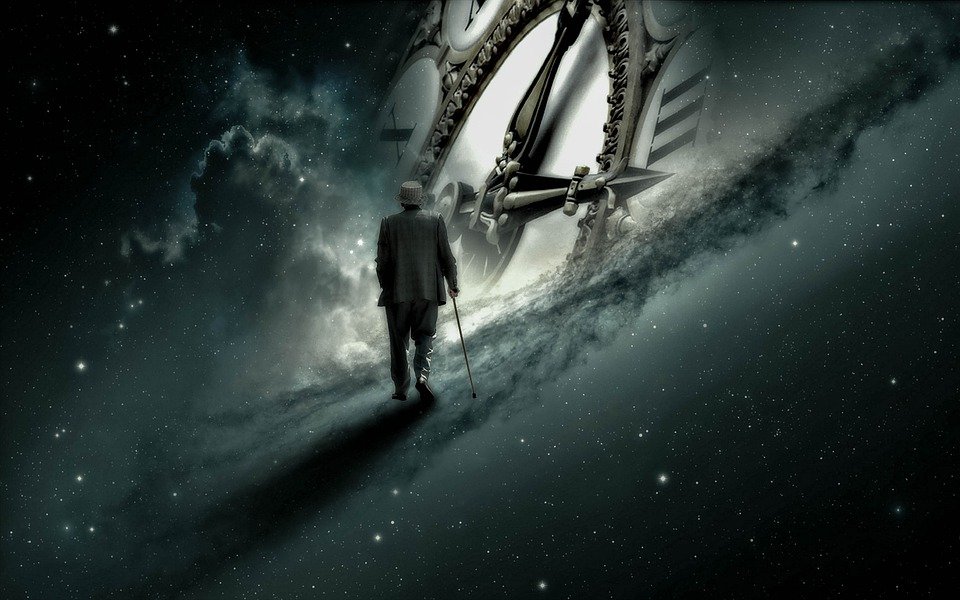
I hope that I, and others, will add corporate wrongdoing to the timelines we make, since corporate crimes are extremely impactful on our lives and preventing us from changing in the ways we want to change, developing in the ways we want to develop. I’m curious what corporations poisoned environments familiar to me and those close to me, and when, and how. It’s interesting to me that many years ago, when I was researching the Stratfor emails and that Austin-based spy firm’s clients who were operating in Mexico, I created a lengthy timeline about Mexican history to help me understand that country — timelines are a typical tool journalists and researchers use to understand the world — but I didn’t have the wherewithal to make a timeline to understand myself, or how corporations in my own city were impacting me and those I cared about. Thankfully, it’s becoming much more acceptable to talk loudly about corporate crimes, and even to talk about avenging them. I remember a decade ago, in the Occupy Wall Street era, acquaintances (whether online or in person) would jump on me for just talking about (let alone talking positively about) sit-ins or take-the-highway protests or writing prisoners, etc. Nowadays, while quite a significant degree of ostracism still results from praising resistance fiercely, the Trump experience has made even the comformists/cowards/careerists hesitant to publicly diss activists. It’s not just Texas vs. Seattle, either, judging from what I see Texan friends/acquaintances saying online. There’s still much more improvement to be had, whether a lot at once or baby steps. Don’t care too much, don’t think too hard, get a job any job, you know there really is a lot of good television lately that transforms lives into unperceivable blurs just won’t cut it. Because military dictatorship may well be coming to this country next, or USians might learn to engage consciously with other countries, not just in the ways they unknowingly already do. And finally, sensible action feels better than anxiety.
News blasts
United States. On May 30 in Dallas, a Marine asked military general & Trump advisor Michael Flynn “why what happened in Myanmar can’t happen here” i.e. the Tatmadaw military overthrew and arrested the democratically elected civilian government in that country last February. The crowd cheered. Flynn answered, “It should happen here.” The crowd cheered again. 30-second video of this embedded below. Be prepared to stop these oligarchs (naming names).
Also regarding Texas-based Elon Musk, a four-minute Anonymous youtube video, uploaded yesterday by original source anonews.co and amplified today by YAC, drags the shit out of the techbros’ favorite billionaire and his inflated reputation. Optional subtitles included.
Myanmar. The News Blasts in my last two posts included Myanmar. If you’re unfamiliar with what’s happening in that country, you might want to review those posts before continuing with this bullet point. Back on May 26, US resource corporation Chevron and French resource corporation Total suspended cash dividend payments that would have gone to the junta, but that’s only 10% of the revenues from the country’s Yadana natural gas pipeline project that Total, Chevron, Thailand’s publicly owned PTT, and Myanmar’s publicly owned MOGE (Myanma Oil and Gas Enterprise) are partners in, so the suspension is merely a step in the right direction. On June 1, Myanmar’s military re-opened schools by force, even though much of the public is far more interested in toppling the junta to restore democracy and/or the National Unity Government (declared terrorist and treasonous by the junta). But the presence of tanks and other regime forces during the re-opening did not stop students from protesting the “military slave education system.” Youth, many Generation Z, engaged in flash protests instead of going to school, criticizing the Tatmadaw (Myanmar military) and expressing sympathy with the country’s oppressed Rohingya people, against whom a genocide has been waged. Youthful protestors also showed their disapproval of the junta holding students captive, one sign reading “Are you reopening schools for dogs to attend after you have been jailing students?” Propaganda photos emerged of soldiers replacing teachers as kids supposedly learned happily, but in many cities, schools were actually largely empty. Since June 1, strikes, protests, and boycotts have continued. Meanwhile, due to transportation costs, cash shortages, and general instability, food prices in Myanmar are skyrocketing, plaguing people with worry. And the junta keeps restricting Internet access. However, passionate people in Myanmar still find ways around the censorship, spreading information online. Hopefully those with corporate media platforms in the U.S., such as the commentariat and literati, will admit they should assist in amplifying those brave voices. The Association of Southeast Asian Nations (ASEAN) — member states are Brunel, Cambodia, Indonesia, Laos, Malaysia, Myanmar, Philippines, Singapore, Thailand, and Vietnam — has been looked to for months by the United Nations, western countries, and China as a potential mediator between the Tatmadaw and the National Unity Government, but on June 4, because ASEAN was meeting with the junta rather than the ousted government, the National Unity Government’s foreign minister Moe Zaw Oo, said “We have little confidence in ASEAN’s efforts. All of our hopes are gone.” Moe Zaw Oo’s streamed press conference was disrupted by the junta’s censorship of the Internet. That same day, deposed Myanmar civilian leader Aung San Suu Kyi, who had been under house arrest in the capital city of Naypyitaw, was moved by the junta to an unknown location, according to her legal team. The National Unity Government’s defence minister, Khin Ma Ma Myo, did say, referring to ethnic armed militias, “The NUG government will call for a war at some point. When that time comes, we must work together to defeat the junta.” Many urban protestors are moving to rebel-held jungle to train for that possible war. A two-minute AFP News Agency video is embedded immediately below.
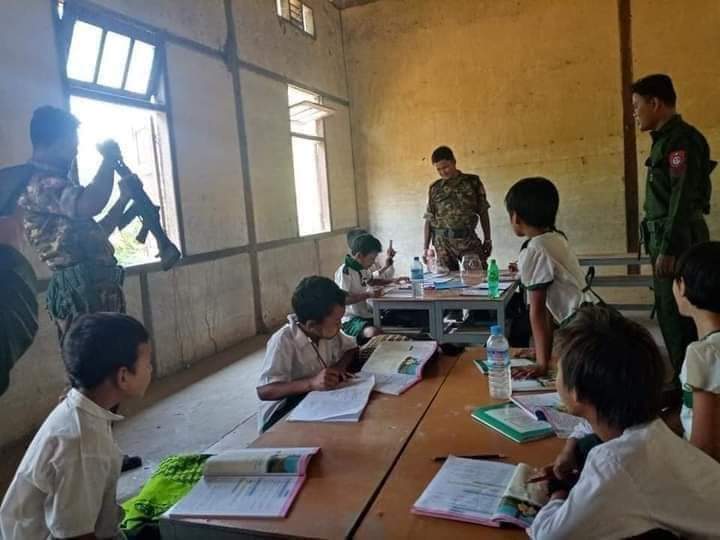
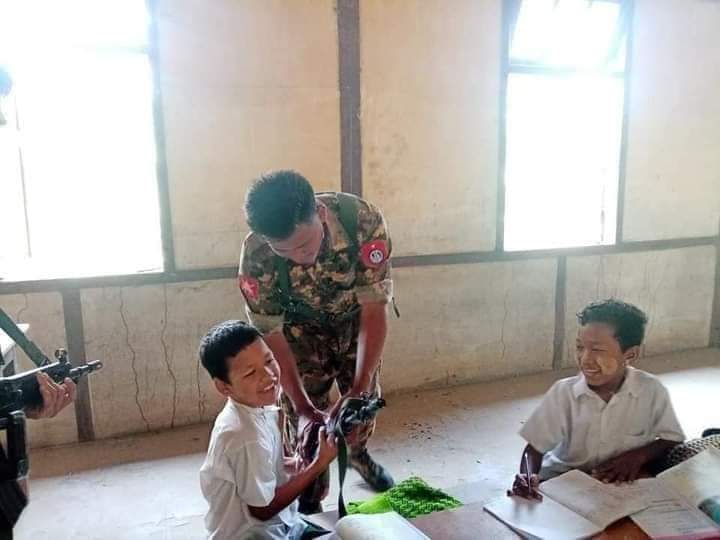
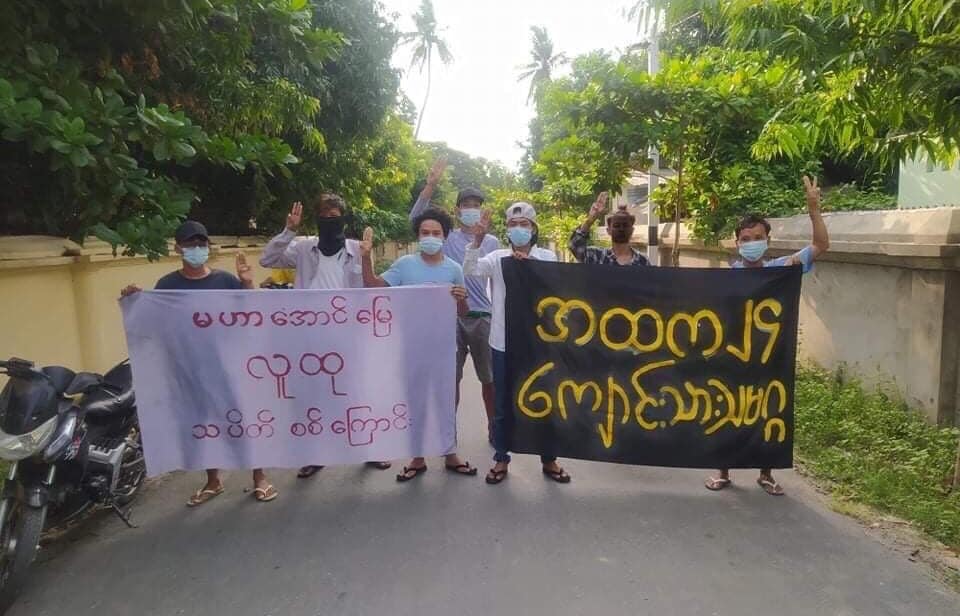

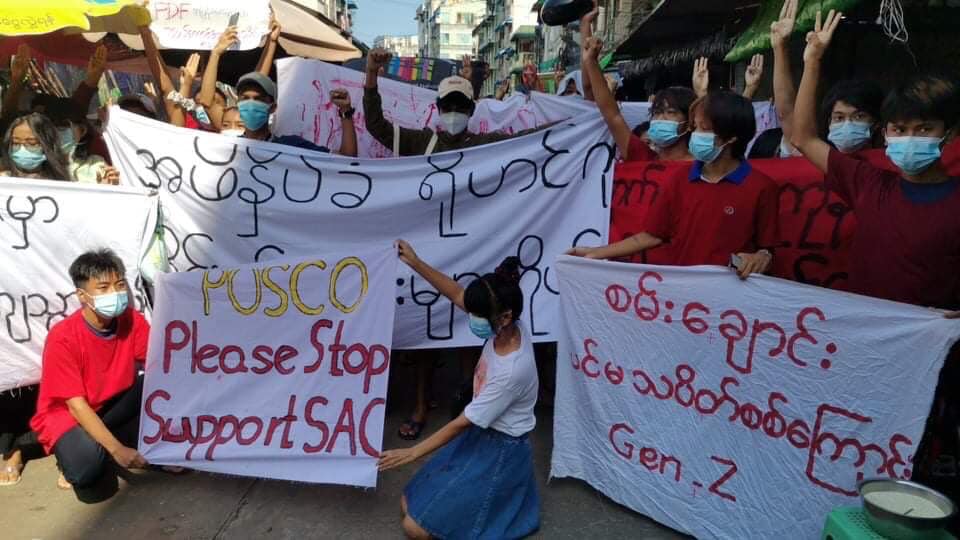

Nigeria. On June 1, the Nigerian president Muhammadu Buhari, a general who ruled the country in the early ’80s through a military coup, tweeted multiple times in reference to pro-Biafra separatists. Buhari’s Trump-like, bombastic tweets accused the separatists of “evil objectives” and seeking the “destruction of the system” and attacking electoral offices along with critical infrastructure. Buhari tweeted “Whoever wants the destruction of the system will soon have the shock of their lives.” One tweet in particular, pictured below, read “Many of those misbehaving today are too young to be aware of the destruction and loss of lives that occurred during the Nigerian Civil War. Those of us in the fields for 30 months, who went through the war, will treat them in the language they understand.” On June 3, Twitter, citing its terms of service against abusive behavior, removed that particular Buhari tweet. On June 4, Buhari, again like Trump, retaliated by throwing a fit and trying to shut down Twitter, attempting to prevent Nigeria’s 200 million inhabitants from accessing the microblogging service that’s t̶h̶e̶ ̶c̶l̶o̶s̶e̶s̶t̶ ̶t̶h̶i̶n̶g̶ an important forum humanity has t̶o̶ ̶a̶ ̶g̶l̶o̶b̶a̶l̶ ̶c̶o̶m̶m̶o̶n̶s̶ for public discussion (̶r̶e̶d̶d̶i̶t̶,̶ ̶y̶o̶u̶t̶u̶b̶e̶,̶ ̶a̶n̶d̶ ̶t̶h̶e̶ ̶b̶l̶o̶g̶o̶s̶p̶h̶e̶r̶e̶ ̶c̶l̶o̶s̶e̶l̶y̶ ̶b̶e̶h̶i̶n̶d̶)̶. Ironically, the Nigerian Ministry of Information and Culture announced the Twitter black-out … on Twitter. The ministry’s head, Alhaji Lai Mohammed, complained that Twitter was inciting violence and spreading “fake news.” Some Nigerians using VPNs have been able to circumvent the Twitter shutdown, and continue to do so, defying Abubakar Malami, the country’s Attorney-General of the Federation and Minister of Justice, who ordered the “immediate prosecution” of any Nigerian members of the public accessing Twitter. Buhari’s efforts at shutting down Twitter have drawn widespread international condemnation. Mazi Nnamdi Kanu, a leader of pro-Biafra separatists, also had his June 2 tweet firing back at Buhari, pictured below, removed by Twitter today, for terms of service violation. Articles for more info and context include two at Reuters and one at the New York Times. However, you can also search Nigeria’s plentiful newspapers (written in English) by going to https://news.google.com and typing in a search term, e.g. “twitter”, followed by site:.ng to restrict the search to news sites with the top level domain for Nigeria.


China. 32 years ago today, the unidentified protestor since nicknamed “Tank Man” blocked Chinese tanks leaving Tiananmen Square where pro-democracy activists were massacred, a subject the Chinese Communist Party still censors with the ongoing help of Microsoft and other big tech companies. CCP atrocities continue, including the current genocide of the Uyghurs. An estimated million Uyghur people are being held by the Chinese government in concentration camps. Embedded below, just under three minutes of footage of Tank Man, the iconic photo of him, and a more zoomed-out image showing just how many tanks he stood in front of.




This blog post, Benefits of making a timeline, both personal and anti-corporate … plus global resistance news, by Douglas Lucas, is licensed under a Creative Commons Attribution-NonCommercial-ShareAlike 4.0 International License (human-readable summary of license). The license is based on a work at this URL: https://douglaslucas.com/blog/2021/06/05/benefits-making-timeline-personal-anticorporate-global-news/ You can view the full license (the legal code aka the legalese) here. For learning more about Creative Commons, I suggest reading this article and the Creative Commons Frequently Asked Questions. Seeking permissions beyond the scope of this license, or want to correspond with me about this post one on one? Email me: dal@riseup.net.
 Twitter:
Twitter:
4 comments ↓
Thanks for sharing–the personal-history timeline is a really cool idea! I think oftentimes people just refer to widespread events of importance (entering school, graduating high school, graduating college, getting married, etc.) to make sense how their lives unfold over time, but especially nowadays due to the corporate takeover of the middle class (which you duly point out), those events are getting less and less widespread, especially for millennials and gen z-ers. People aren’t getting married as often, people aren’t having kids as often, and there might be long spans of time between say graduating college and getting married and buying a house for those people who do those things. And those large spans of in-between time can certainly “feel like a blur*,” so timelining could help a lot with that.
*(They certainly do for me, anyway! In my case, from around 2000 to 2010 feels like a fiction when I think back to those years, like my memories of that time could just as easily be someone else’s memories–it doesn’t really feel like me, you know? It’s as though those memories somehow aren’t really coherent with the rest of my life. Maybe that’s a kind of disassociation? I don’t know, but maybe I’ll try a timeline of my own starting then!)
Flynn: the guy in the audience pronounces the country’s name “Minimar” and then to ask his question he ironically uses the title of the Sinclair Lewis book “It Can’t Happen Here” in the exact opposite sense from which it was intended. Pretty much exactly what I’d imagine a typical MAGA event to be like, right? Flynn seemed uncomfortable, but far be it from him apparently to stand up to a MAGA crowd and try to talk some sense into them. But this is no apology for Flynn–he knew what he was getting into when he accepted the invitation to speak there.
Nigeria: Not trying to defend Buhari, but I can see a problem when Silicon Valley execs can censor internal political speech of foreign countries. Or I should say, I can see why Buhari would throw a fit and try to shut them down. I dunno… it’s hard for me to think of Twitter as a global commons when they seem to have a pretty evident political bias they deploy when removing tweets. I guess my question is what makes Jack Dorsey’s bias any better/worse than Buhari’s? (BTW, am I the first to comment on the unmistakable resemblance between Dorsey and Osama Bin Laden when it comes to facial hairstyle?)
Thanks for the great comment!
I struck the global commons part out since, as you say, Twitter is biased and censoring. And, it’s also heavily oriented around personalities rather than stark research. Among other differences. The global commons for public data concept versus social media sites, is really apples versus oranges, and I think it introduces only more confusion for me to basically say “Of all these apples, this apple is most similar an orange.” I was trying to convey something of the excitement researchers share on twitter, and suggest that the same vibe might be even more present on a global commons for public data.
[…] ← Benefits of making a timeline, both personal and anti-corporate … plus global resistance news […]
[…] news blasts about Myanmar (in chronological order from earliest to most recent) here, here, and here. The very short version of the overall situation is that in February 2021, the military in Myanmar, […]
Leave a Comment